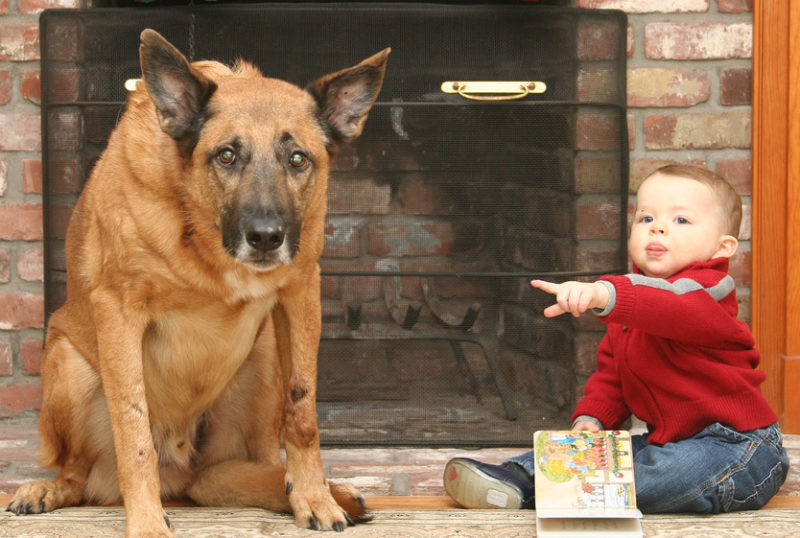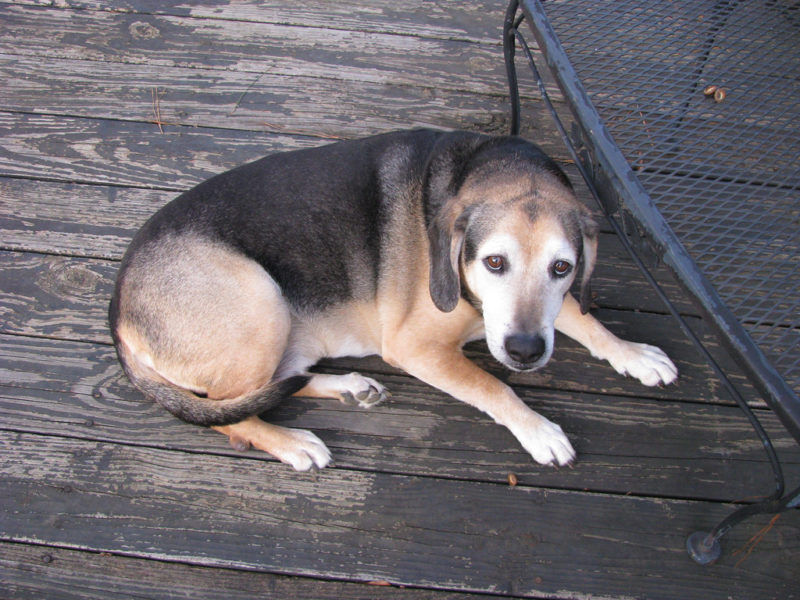Pet behavior myths and misconceptions abound. How do these ideas get started? Often they originate with anthropomorphizing: assuming that animals reason and react the same way people would under similar circumstances. Cats and dogs do think and feel, of course, but not necessarily the same way their owners do.
Another way people misinterpret animal signals is by taking a behavior displayed by an individual in a particular situation and generalizing it into a trait shared by a whole species. For example, someone watching a dog chase squirrels and cats in his backyard might decide that dogs have overwhelming predatory instincts and are the sworn enemies of cats. For a heartwarming set of counterexamples, you need look no further than Unlikely Friendships Dogs, the latest in Jennifer S. Holland’s best-selling series of books about animals who look out for one another. In the new book, due out August 23, she writes about such caregiving animals as Lilo, the once-aggressive Siberian husky who nursed a sick kitten back to health, and Idgie, the abandoned dachshund who refused to desert her even-worse-off friend, Ruth, a partially paralyzed cat. Sworn enemies? Ruthless predators? Not necessarily, and not always.
Common Pet Behavior Myths
My dog knows when he’s done something wrong, because he acts guilty and hides from me. Actually, your dog knows that you’re angry at him, but he probably doesn’t know why. Say you come home and find the kitchen trash tipped over and the contents strewn about the room. Do you look, sound, and act mad? I bet you do, and your dog feels it. Does he also know what he did to elicit this reaction, and that what he did was “wrong”? I argue that he does not. First of all, unless you caught him in the act, he wasn’t doing anything wrong when you got mad, nor does he remember having tipped over the garbage. Second, he may have learned that you will reprimand him for nosing around the garbage when you see him doing it, but that does not mean he regards an interest in the garbage as “bad.” How could it be? Garbage is full of wonderful things if you’re a dog, so there is no way an interest in it can be wrong.
Bottom line: Don’t expect your dog to avoid temptation while you’re gone. Keep him out of trouble by preventing access to areas and objects he might damage.
Cats purr when they’re happy. Many cats purr when they’re content, but some cats never purr at all, no matter how happy they are. Some cats also purr to comfort themselves, and so, surprising as it may seem, it’s not unusual to hear a sick or injured cat purring.
If a dog’s tail is wagging, he’s friendly. This is a truly dangerous misconception about dog behavior. Canine body language is not especially complicated, but it is not all about the tail. A dog’s stance, head position, and facial expression are equally important. For example: A dog you don’t know is standing at attention, staring at you or your dog, with his tail straight up and waving slowly. Should you walk up to him, expecting a friendly greeting, or slowly and quietly change direction? You should turn and walk the other way. His stiff posture, stare, and vertical tail mean that he is on high alert and could behave aggressively.
In contrast, a dog who wants to play with another dog is likely to do a “play bow”—bending down on his front legs, with his head low, his hind legs straight, and his tail waving madly.
Cats are aloof and antisocial. Some cats—OK, they are often described as being “like dogs”—are outgoing, playful, and affectionate, even around people they don’t know well. Some cats like to play fetch. I’ve known several cats who have enjoyed going on walks with their owners and canine family members. And some cats are so darned affectionate you wish they’d just get off the book on your lap and go be antisocial for a few minutes, for pity’s sake. Can you tell what kind of cat I happen to have?
A dog who urinates in the house when you’re gone does so out of spite over being left alone. If a dog urinates in the house when no one is home, most likely she is ill and can’t hold her urine for as long as you’re gone, or else she has separation anxiety, and it literally scares the piss out of her to be left by herself. Either way, a consultation with your veterinarian is in order. If your dog has a bladder infection, diabetes mellitus, Cushing’s disease, or a decline in kidney function, medication or a change in diet can help. If she has separation anxiety, your vet can recommend strategies to minimize your dog’s stress. Creating a safe space and a calm routine for when your dog is alone is the most effective way of reducing separation anxiety. There is no drug that will “cure” separation anxiety, so management techniques come first, with medication added later if needed.







No Comments